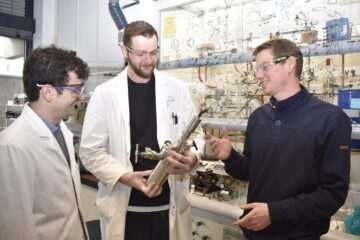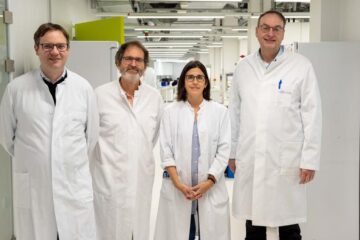"Exercise every 15 minutes", DVT expert warns holidaymakers

Experiments conducted by Steve Hunter at the University have shown that sitting still for even one hour can cause a decrease in blood velocity, which could lead to a pooling of blood in the lower legs and an increased risk of DVT. Mr Hunter also warns that immobility when travelling by coach and car could cause similar problems.
A series of lab-controlled experiments found that introducing three five-minute exercises during a 60-minute period increased blood velocity by 20 per cent, thus reducing the risk of DVT. “Participants using a foot pump, which are readily available to the public, were found to have a much higher blood velocity and better flow compared to those who didn’t,” Mr Hunter said. “What this shows is that exercising regularly is vital, regardless of whether the flight is long or short-haul.”
Mr Hunter, who has been researching the impact of exercise on blood flow for two years, added that coach and car travellers were also susceptible. “It doesn’t just occur in-flight, it can happen during any instance where people are sitting still for long periods,” he said. “I would advise everybody to think about exercising every 15 minutes, even if it’s just pushing up to tip toes to work the calf muscles, because this can make all the difference. Drinking lots of water is also important.”
Media Contact
More Information:
http://www.communicationsmanagement.co.ukAll latest news from the category: Health and Medicine
This subject area encompasses research and studies in the field of human medicine.
Among the wide-ranging list of topics covered here are anesthesiology, anatomy, surgery, human genetics, hygiene and environmental medicine, internal medicine, neurology, pharmacology, physiology, urology and dental medicine.
Newest articles

Efficient, sustainable and cost-effective hybrid energy storage system for modern power grids
EU project HyFlow: Over three years of research, the consortium of the EU project HyFlow has successfully developed a highly efficient, sustainable, and cost-effective hybrid energy storage system (HESS) that…

Safer alternative for an explosive reaction
The chemical industry has been using a reaction with explosive chemicals for over 100 years – now Mülheim scientists have discovered a safer alternative. The Ritter Group of the Max…

How immune cells communicate to fight viruses
Chemokines are signalling proteins that orchestrate the interaction of immune cells against pathogens and tumours. To understand this complex network, various techniques have been developed to identify chemokine-producing cells. However,…





















